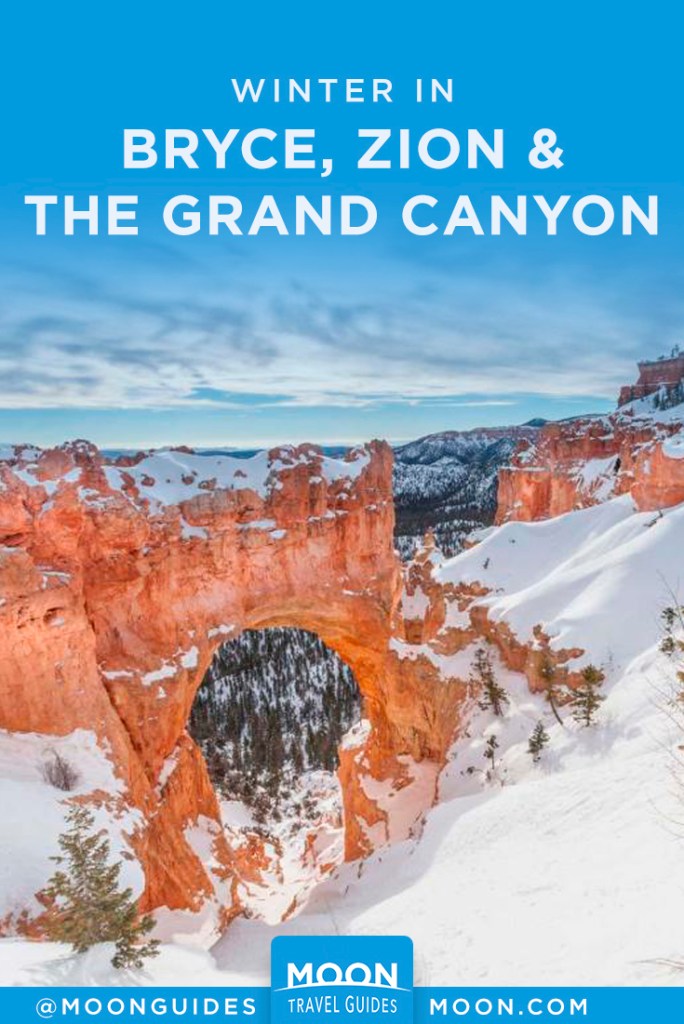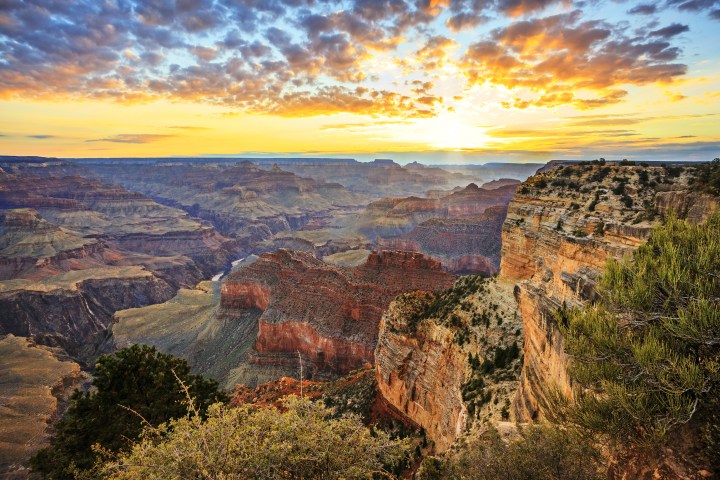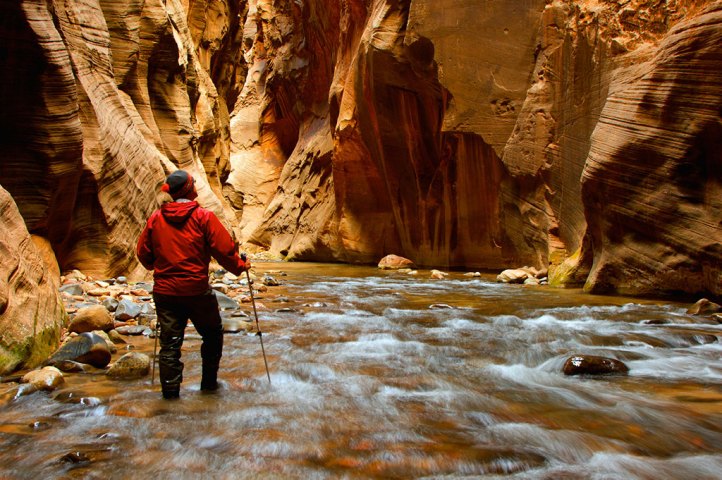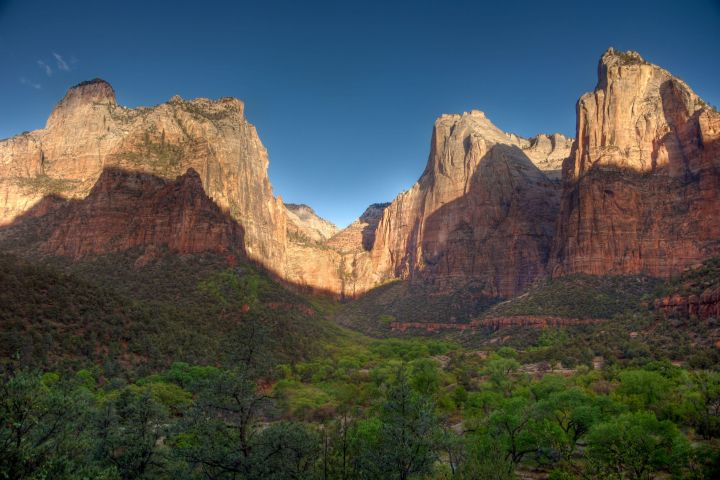Visiting Bryce, Zion, and the Grand Canyon in Winter
This is a perfect winter day on the Colorado Plateau: it’s cold but sunny, and there’s new white snow on the sandstone and the evergreens. The red dirt is wet, the washes trickle with melting ice, and the big blue sky shines clean and cloudless.
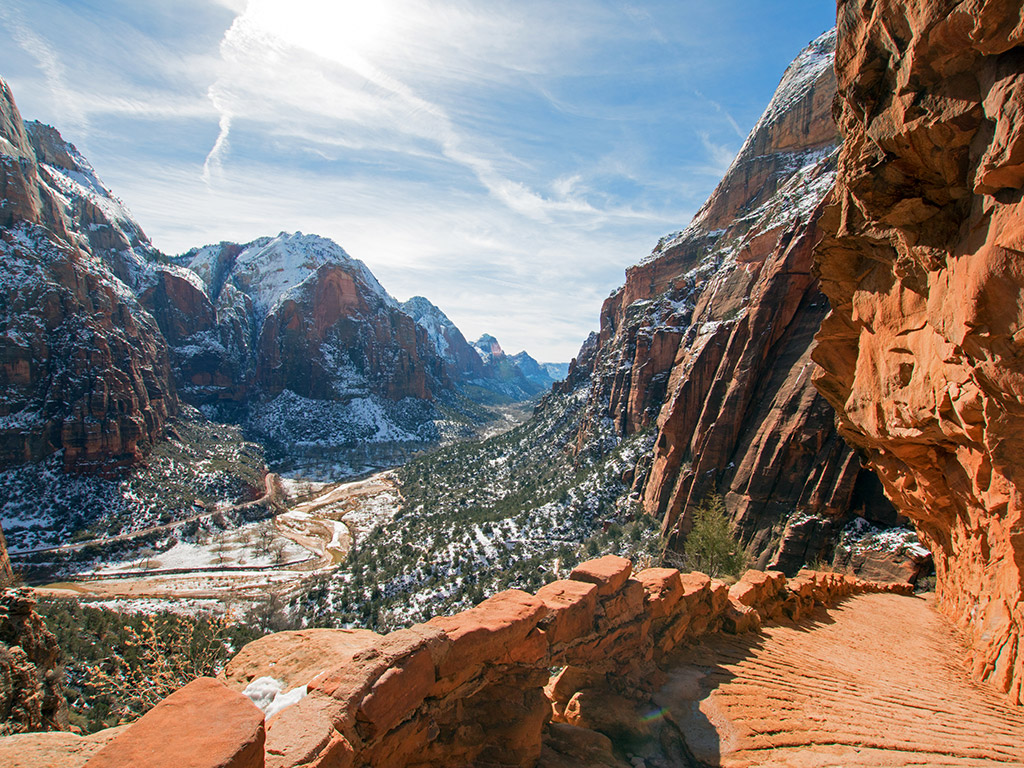
And yet the bucket-list parks in the region around northern Arizona and southern Utah, perennial stops on the great Southwest Road Trip, remain largely summer destinations. From December though March, visitor numbers at Grand Canyon National Park, Zion National Park, and Bryce Canyon National Park plunge with the average temperatures.
In August 2015, at the the height of Grand Canyon’s busy season, 793,412 people visited the South Rim. In January, the park’s least busy month, that number plummeted to 191,781. The National Park Service’s visitor reports show that Grand Canyon’s more humble neighbors experienced a similarly lonely winter. Zion recorded 479,538 visitors in July 2015, but in January had just 78,318. Bryce Canyon welcomed 305,465 in June 2015, and a mere 21,949 in January.
I was in Zion in July 2015. The lines of cars and the chaotic, overfull parking lot outside the park gates made me question my choices. I visited Grand Canyon and Bryce Canyon that summer as well. At Grand Canyon, I had to wait in a makeshift line to take a photograph outside the Lookout Studio. Hiking the popular trails in Bryce Canyon, I was never alone.
While none of these minor irritations, which are all part of today’s National Park experience, ruined my visit, we all fantasize about having the place to ourselves. According to the numbers, you could come close during the winter months.
For those who seek solitude and tranquility, and who don’t mind wearing winter coats, gloves, and knit caps, it’s worth considering a winter trip to these otherwise busy and stressful parks. It will be cold; it will be wet and windy, and it will probably snow. But there will also be many of those perfect winter days.

About the Weather
Grand Canyon National Park
Average winter highs on the South Rim (the North Rim is closed Nov–May), which sits at about 7,000 feet above sea level in a pine forest, typically range from the high forties to the mid fifties. There’ll be an even colder wind in your face much of the time, and intermittent rain and snow storms throughout the season. There’s often snow on ground but it melts quickly when the sun comes out, which it does most days.
Zion National Park
Probably the best of the three parks for a winter visit, Zion is in the “Dixie” region of southern Utah, which is renowned for its temperate climate. Expect high temperatures in the fifties and sixties, rain and sometimes snow, and rising, dangerous waterways.
Bryce Canyon National Park
Winter visitors to Bryce Canyon, which sits at around 8,000 feet above sea level, should expect very cold temperatures and snow. Highs range from the thirties to the forties. The park’s famous hoodoos are often covered in a thick layer of snow, but the roads are kept plowed and safe.

Always check road conditions before traveling to these parks during the winter months. For road conditions inside Grand Canyon National Park, call 928/638-7496. For conditions outside the park, check with the Arizona Department of Transportation (888/411-7623). The Utah Department of Transportation (801/964-6000) provides updates on road conditions around Zion and Bryce.
By clicking ‘Sign Up,’ I acknowledge that I have read and agree to Hachette Book Group’s Privacy Policy and Terms of Use
Explore More of the National Parks
Pin For Later
